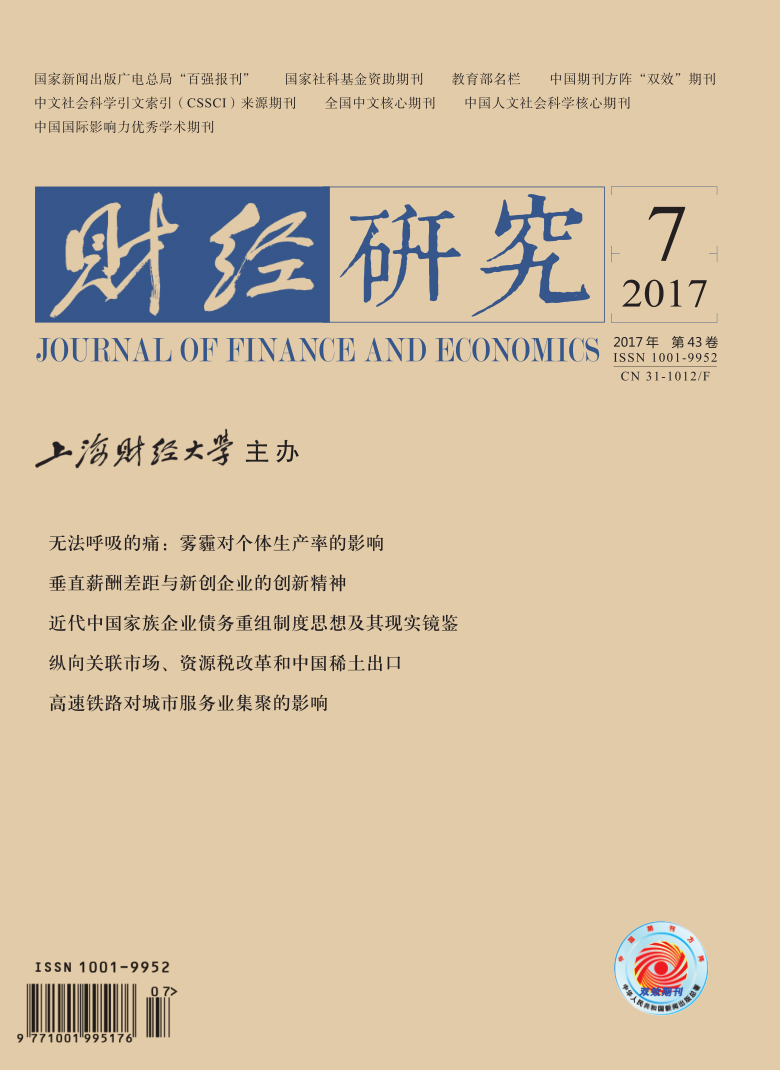The levy on China's rare earth from volume-based tax to ad valorem tax is obviously more in line with market-oriented principle, but are these two types of tax levied consistent with China's ability to control the rare earth prices in the world? How will different types of tax levied affect the implementation of resource tax? This paper constructs a game theory model based on vertical related markets to study the effects of different types of rare earth tax levied by governments on enterprise tax burden transfer. It arrives at the following conclusions:firstly, if our market concentration of upstream industry is low or the downstream imported market concentration rate is high for the same market structure, no matter which kind of tax is levied, the tax burden will be mainly taken by production enterprises in downstream developed countries; secondly, when the marginal costs of rare earth production are higher, the transfer of ad valorem tax burden on consumer is larger than the one of volume-based tax burden, namely the export price rise brought by levying ad valorem tax is higher than that by volume-based tax; thirdly, if our market concentration of upstream industry is high or the downstream imported market concentration rate is low for the same market structure, China should levy resource tax on rare earth production when the governments choose ad valorem tax, but China should offer resource subsidies to rare earth production when they use volume-based tax. In short, the effect of resources tax policy implementation is related to upstream and downstream market structure. Therefore, to encourage the healthy development of rare earth industry in China, it needs to not only levy ad valorem tax on rare earth in the short term, but also focus on the future to encourage downstream enterprises in China's rare earth industry to be bigger and stronger by relying on technological progress and fundamentally change the monopoly of downstream rare earth industry by developed countries at present.
 / Journals / Journal of Finance and Economics
/ Journals / Journal of Finance and EconomicsJournal of Finance and Economics
LiuYuanchun, Editor-in-Chief
ZhengChunrong, Vice Executive Editor-in-Chief
YaoLan BaoXiaohua HuangJun, Vice Editor-in-Chief
Vertical Related Markets, Resource Tax Reform and the Export of China's Rare Earth:Evaluation of Implementation Effect of Volume-based and Ad Valorem Tax of Resources
Journal of Finance and Economics Vol. 43, Issue 07, pp. 95 - 106 (2017) DOI:10.16538/j.cnki.jfe.2017.07.008
Abstract
References
Abstract
Cite this article
He Huanlang, Chen Lin. Vertical Related Markets, Resource Tax Reform and the Export of China's Rare Earth:Evaluation of Implementation Effect of Volume-based and Ad Valorem Tax of Resources[J]. Journal of Finance and Economics, 2017, 43(7): 95–106.
Export Citations as:
For
Previous: Dialect and Social Trust
ISSUE COVER
RELATED ARTICLES





 7980
7980  5534
5534

